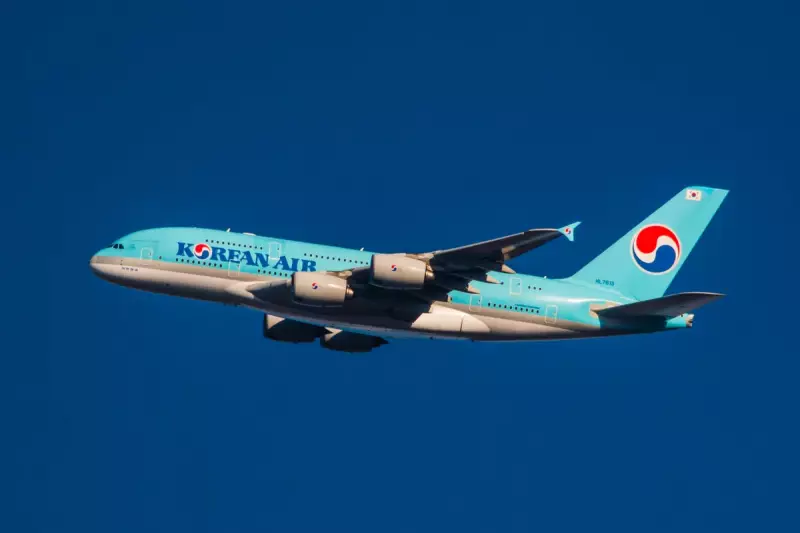
In a colossal boost for American aerospace manufacturing, Korean Air has officially cemented a monumental deal with Boeing, agreeing to purchase up to 50 state-of-the-art 737 MAX aircraft. The agreement, valued at a staggering $14 billion at list prices, marks a significant triumph for the US planemaker and is shrouded in political intrigue.
The landmark order, which includes a firm commitment for 30 jets and options for 20 more, was reportedly propelled across the finish line following the direct involvement of former US President Donald Trump. Sources indicate that Mr. Trump engaged in personal negotiations with the Korean Air chairman, Cho Won-tae, advocating fiercely for the American-made jets.
A Deal Forged in High-Stakes Diplomacy
This massive procurement is seen as more than a simple commercial transaction; it's a potent symbol of the deep economic and diplomatic ties between the United States and South Korea. The deal is a substantial win for Boeing, providing a powerful endorsement for its 737 MAX model, which has been working to rebuild its reputation following a lengthy global grounding.
The aircraft involved, the 737 MAX 8 model, is renowned for its enhanced fuel efficiency and reduced operational costs, making it an attractive choice for airlines worldwide looking to modernise their fleets and improve sustainability credentials.
Economic Ripples and Industry Impact
The financial implications of this deal are profound. A contract of this magnitude secures thousands of high-skilled manufacturing and engineering jobs within Boeing's US supply chain, underscoring the critical importance of the aerospace sector to the American economy.
For Korean Air, the investment represents a strategic fleet expansion and modernisation plan. Integrating these new, more efficient aircraft will be pivotal for the carrier as it navigates the competitive post-pandemic travel landscape and works towards its ambitious environmental targets.
This agreement solidifies Korean Air's position as a key global player in aviation and highlights the intense competition between Boeing and its European rival, Airbus, for dominance in the single-aisle aircraft market.





